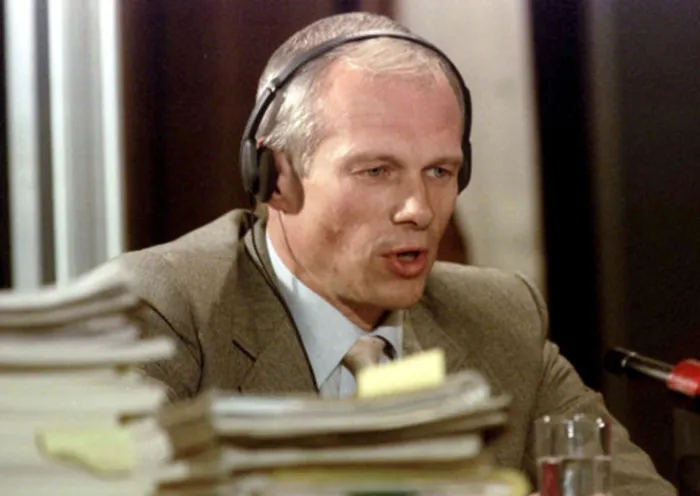Chris Hani’s killer Janusz Walus released on parole after nearly three decades behind bars

A file picture of Chris Hani’s killer, Janusz Walus.
Pretoria - Chris Hani’s killer, Janusz Walus, was today released on parole after spending nearly three decades behind bars for the April 1993 murder.
The Minister of Justice and Correctional Services, Ronald Lamola, in a statement issued confirmed that Walus was placed on parole earlier in the day. He said it was under strict conditions for two years, where after that he will be completely free.
His release follows the judgment of the Constitutional Court handed down on November 21.
“Offender Walus was only discharged from hospital today as he had been receiving treatment after he was involved in a stabbing incident. He will serve two years under community corrections in line with the parole regime upon which he is released,” the minister said.

Lamola added that “there is no question that Walus is a polarising figure in our budding constitutional democracy, and that his release has understandably re-opened wounds among some in society, especially the family of the late struggle icon Chris Hani.”
“Offender Walus’ actions sought to derail the democratic project at its most critical, formative stage, when the choice of either setting the country on a sustainable path of peace, democracy and reconciliation on the one hand, or chaos, civil strife and blood-letting on the other, was constantly one bad decision away.”
“His killing of Hani was unqualifiedly among those actions that sought to condemn the country to the latter fate, had it not been for the inspired leadership of our nation’s founders and the resolve of the people of South Africa,” the minister said.
He explained that in previously denying him parole, the decision was not in the spirit of avenging a stalwart of our liberation struggle, but it has always been within the context of giving effect to the interests of justice, from the perspective of what the sentencing court sought to achieve.
In its unanimous judgment, the Constitutional Court set aside the judgment and order of the Gauteng High Court, Pretoria, and the minister was ordered to place Walus on parole within 10 days.
This was, however, stalled, after Walus was stabbed in prison by a fellow inmate and he had to spend several days in hospital.
“Our courts on previous occasions reminded us that our Constitution is located in a history which involves a transition from a society based on division, injustice and exclusion from the democratic process to one which respects the dignity of all citizens, and includes all in the process of governance.”
“As such, the process of interpreting the Constitution must recognise the context in which we find ourselves and the Constitution’s goal of a society based on democratic values, social justice and fundamental human rights,” the minister said.
He added that this spirit of transition and transformation characterises the constitutional enterprise as a whole.
Lamola, however, warned that our parole system is not a wanton license for unaccountability and impunity. Neither does it nullify the original verdict and sentence imposed by the courts.
“Parole is an acknowledged part of our correctional system. It has proved to be a vital part of reformative treatment for the paroled person who is treated by moral suasion. This is consistent with the law; that everyone has the right not to be deprived of freedom arbitrarily or without just cause, and that sentenced offenders have the right to benefit from the least severe of the prescribed punishments.”.
“It is our long-standing vision that the laws of the country are there to advance and uphold the rights of everybody on an equal basis, regardless of colour, gender, language, religion, or culture,” he said.
According to Lamola, Walus has been furnished with his parole conditions in terms of the Correctional Services Act. He made it clear that if he violates the conditions, he will be returned to a correctional centre.
It is not clear where Walus will stay for the next two years, but Home Affairs earlier said that he should serve his parole to the “fullest” in South Africa and granted him an exemption in terms of the Immigration Act to serve his parole in the country.
Walus earlier expressed his hope to return to his country of origin, Poland, following his release on parole.
Pretoria News